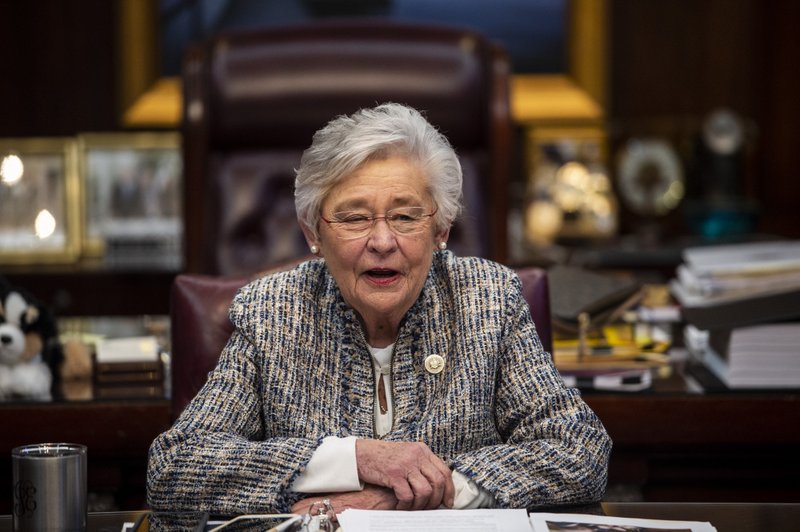Alabama Democratic Women announce virtual convention; looking for representatives

The National Federation of Democratic Women (NFDW) will be holding its national convention this year on June 11 and 12. The deadline to register for the “Women Build Back Better” event is today, May 25. Alabama Democratic Women (ADW) president LaTanya Millhouse is one of the Co-Chairs for the virtual event. ADW is a statewide organization and received its charter on April 13, 2019. According to their website, ADW is a nonprofit political organization “dedicated to supporting the Democratic Party and Democratic Women in Alabama.” The group has an Executive Board comprised of five officers and Regional Directors to represent Alabama’s seven Congressional Districts. The ADW is looking for women interested in representing Alabama at the convention and in the future. Alabama will bid for the 2023 National Convention. Some of the positions needing to be filled include Director of Recruitment, Training Coordinator, Legislative Chair, and Voter Education Chair. According to the NFDW website, the organization’s goal is to “unite women of the Democratic Party, to promote the cause of the Democratic Party, and to encourage full participation of women in every level of the Democratic Party Structure.”
Greg Cook announces his candidacy for Alabama Supreme Court

Greg Cook has announced that he is running for the Alabama Supreme Court in 2022. Cook is general counsel for the Alabama Republican Party and a practicing attorney with 30 years of experience in the courtroom. He is running for the associate justice position currently held by Justice Mike Bolin. Justice Bolin is not running for re-election in 2022. Cook stated, “Judges should not legislate from the bench, but should apply the plain meaning of the written law. Judges should be like neutral umpires – just calling the balls and strikes – not favoring one side over another. Instead of calling balls and strikes, activist judges can deliver home runs for progressive policies. We can’t have that in Alabama. We need justices who will follow the law and fairly rule on the cases before the Alabama Supreme Court.” “I’m a conservative grounded in principle, who believes a judge is there to apply the law as written. This might sound boring and predictable, but it’s who I am,” concluded Cook. Cook is from Florence, Alabama. He attended Duke University on an Air Force ROTC scholarship and served in the Air Force. In 1988, Cook was admitted to Harvard Law School, where he worked on the Federalist Society’s Journal of Law and Public Policy with Supreme Court Justice Neil Gorsuch. After finishing law school, Cook moved back to Alabama to begin practicing law in Birmingham. In 2000, he served as volunteer attorney for the Bush vs. Gore legal battle in Florida, where Cook helped supervise the hand recount of the famous hanging-chad ballots. He has served locally on the Jefferson County Republican Steering Committee, Executive Committee, and as Legal Counsel to the Jefferson County GOP for almost two decades. He served on the Alabama Republican Party Executive Committee for almost 15 years, including the past 4 years as General Counsel for the Alabama Republican Party. Cook has been married to his wife Kimberly for 33 years. They have three children: Geoffrey, Mary Catherine, and Will. Cook also gives back to his community by volunteering his time with several local non-profit organizations, including the United Way and the Boy Scouts in many different leadership roles, including as an officer for the Greater Alabama Council. The Council recently awarded him its highest honor, the Silver Beaver Award. Cook has held numerous positions with the ABA, Alabama, and Birmingham Bar. He serves on Alabama’s Supreme Court’s Civil Rules Committee and has authored a two-volume treatise, Alabama Rules of Civil Procedure Annotated, and two books for the ABA.
Alabama Water Works Board votes to triple what it pays lobbyists

The Birmingham Water Works Board (BWWB) voted in April to triple the number of lobbying firms it uses, WBRC reported. They also tripled the amount they pay for lobbying services and hired two lobbyists who are not currently registered to lobby with the U.S. House or Senate. Additionally, only one is registered to lobby with the Alabama Ethics Commission. Montgomery-based lobbyists The Jones Group is currently employed by BWWB and has paid them $90,000 a year to for the past couple of years. It is now $10,000 a month. On April 14, the board approved hiring two more lobbyists in one meeting – more than triple what the utility pays for lobbying. BWWB board general manager, Michael Johnson, said that the money spent on lobbyists is worth it, reported CBS. Johnson stated, “This is $396,000. I’ll reiterate to you, we don’t want to miss an opportunity.” The additional lobbyists hired, Pat Lynch and Earl Hilliard will be paid $120,000 and $156,000, respectively. “That’s not a great response, the customers clearly have some concerns, and dissatisfaction,” warned J.D. Power analyst Andrew Heath, who helped compile the survey. “How can the waterworks improve that score? Are they spending our money in a good way, are they improving the infrastructure? If the utility does a good job telling us how they’re using that money and then making sure we understand we’re investing in the future not just servicing debt and all that other stuff, that is the best thing they can do,” commented Heath. “If we can get additional capital dollars, this will more than pay for itself,” stated Johnson of the new lobbying contracts. “And these are not contracts that will go forever. We are in unprecedented times, and we don’t want to miss out on an opportunity.” WBRC asked the board’s Vice Chairman Dr. George Munchus why he supported the new contracts, and he sent this statement: “The capital infrastructure needs of the BWW are in excess of $700 million dollars and additional resources are needed beyond what we ratepayers pay each month for great, clean water. “Partnerships with the city and county and state and federal and private sectors are critical as they have similar capital project needs. All utilities must invest in these resourced sorts of efforts. I think Alabama Power contracts with 11 such outside firms and SPIRE (Alabama Gas) contracts with six such outside firms? Many of these utilities also have in-house people that do such as well. “Even the holding company that owns WBRC has such a contract function in American business.”
Alabama governor signs ‘vaccine passport’ ban

Gov. Kay Ivey on Monday signed legislation banning so-called vaccine passports as Alabama becomes the latest state to try to prohibit proof of a coronavirus vaccination to enter a business, school or event. The legislation by Republican Sen. Arthur Orr of Decatur would prohibit government entities from issuing “vaccine or immunization passports” or other “standardized documentation for the purpose of certifying immunization status.” The bill makes exemptions for child immunization forms and “other applicable state law.” The new act would also prevent people from being denied entry to businesses, universities, and state agencies if they have not been vaccinated for COVID-19. However, the legislation does not specify any penalty for violations. The Alabama House of Representatives last week voted 76-16 for the bill after stripping language that would have exempted health offices and nursing homes and adding language saying universities cannot require students to have vaccines developed after Jan. 1, 2021. The Senate approved the bill earlier in the session by a 30-0 vote. “I am supportive of a voluntary vaccine and by signing this bill into law, I am only further solidifying that conviction,” Ivey said in a statement released by her office. “I made the choice to get the COVID-19 vaccine and glad for the peace of mind it brings. I encourage any Alabamian who has not gotten their shot to roll up their sleeves, and if you have questions, consult with your health care provider,” she said. Orr said the aim of the bill is “to prevent the creation of a discriminatory society based on vaccination status.” Orr said there are exemptions in the bill as to not interfere with school immunization cards and other vaccinations forms. A spokesman for the Alabama Department of Public Health said the new act does not appear to prohibit the issuance of vaccination cards — such as those currently issued for COVID-19 vaccinations — by the state as well as other vaccine providers. “Personal vaccination records provided by ADPH are not to serve as a passport to serve as a means of entry into any establishment or place of business,” Ryan Easterling, a spokesman for the Alabama Department of Public Health wrote in an email. Republicans in several states have backed bans on so-called vaccine passports even though they are not in widespread use in the U.S. Some Alabama House Democrats last week criticized the broad wording of the bill and said it was about politics rather than public health decisions. “When does it become your right to pass on your illness on to someone else?” Rep. Mary Moore, D-Birmingham, said. Rep. Merika Coleman, D-Pleasant Grove, said that Republicans are choosing to dictate to businesses what they can and can’t do. The idea of so-called vaccine passports is to have a document that shows you were vaccinated against COVID-19. Federal officials say there are no plans to make them broadly mandatory, but some Republican governors have issued orders barring businesses or state agencies from asking people to show proof of vaccination. Hawaii has a limited vaccine passport program for inter-island travel that allows people who received their vaccine shots to skip testing and quarantine rules for travel between the islands. New York officials have launched a digital app New Yorkers can download to show proof of vaccination or a negative COVID-19 test. Republished with the permission of the Associated Press.
COVID-19 face mask requirement expiring in Birmingham

Alabama’s largest city will let its COVID-19 face mask requirement expire after Monday in what officials said was a step toward returning to pre-pandemic normalcy. Begun more than a year ago and most recently extended in early April, before the state dropped its mask requirement, the rule will end at a time when fewer patients are hospitalized with the illness caused by the new coronavirus since early April 2020. Noticeably more people have worn masks in the city than in outlying areas, and Mayor Randall Woodfin said the end of the requirement was a sign that vaccinations were making a difference. “I urge everyone to remain vigilant. If you haven’t received the vaccine, please do so. If you have loved ones or friends who have not been vaccinated, help them make an appointment,” he said, according to al.com. The head of the area chamber of commerce, the Birmingham Business Alliance, said member companies were split over whether the requirement should continue. “One-third said get rid of it,” Ron Kitchens, chief executive of the organization, told WBRC-TV. “And one-third said let’s keep it a little while and one-third said whatever leadership decides, we support.” Researchers at Johns Hopkins University said that over the past two weeks, the rolling average number of daily new cases in Alabama has decreased by 50, a decline of 14.6%. But there were still about 228 new cases per 100,000 people in Alabama over the period, which ranks fourth nationally per capita. Jefferson County, where Birmingham is, and heavily populated neighboring Shelby County led the state in case increases, the researchers found. Nearly 37% of the state’s residents have received at least one vaccine dose and almost 29% are fully vaccinated, according to Johns Hopkins. City Council President William Parker said anyone who isn’t vaccinated needs to continue wearing face masks to prevent another uptick in cases. “We’re making a lot of progress, but we still have a long way to go,” he said. Republished with the permission of the Associated Press.


